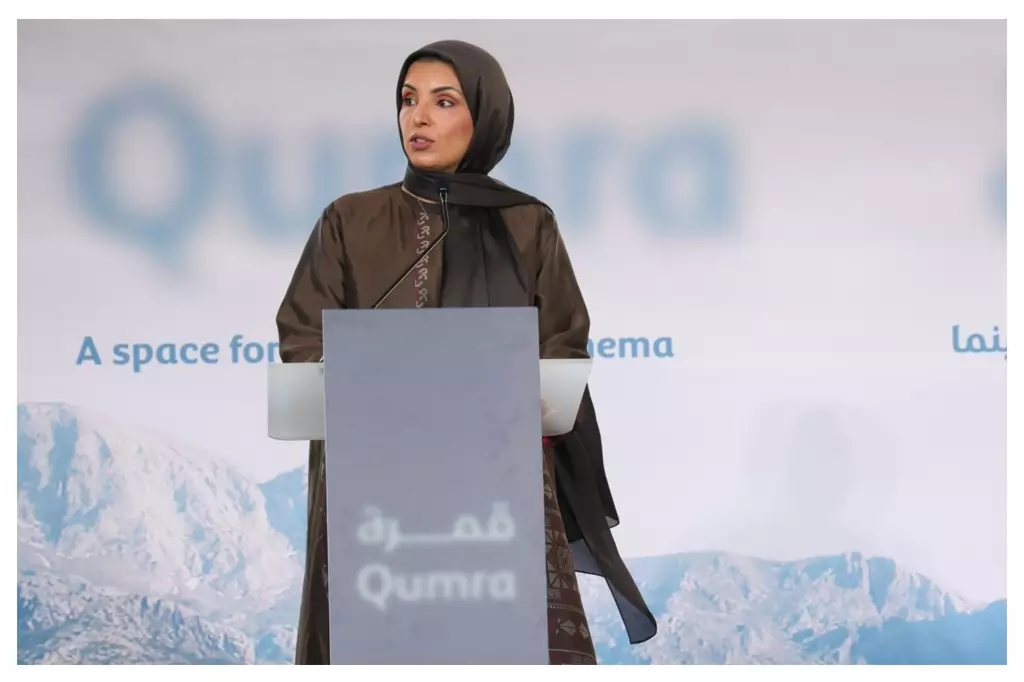As the tumultuous situation in Israel and Gaza escalates, it casts a long shadow over cultural events like the annual meeting organized by the Doha Film Institute (DFI). This year, the gathering held at Doha’s Museum of Islamic Art was not just an occasion for filmmakers and creatives to connect, but a poignant reminder of the vital role storytelling plays in times of crisis. With around 300 participants in attendance, the atmosphere brimmed with the anticipation and urgency that often accompanies discussions on art within a politically charged landscape.
The opening remarks delivered by DFI CEO Fatma Al Remaihi were not mere formalities; they were a clarion call. Her candid acknowledgment of the ongoing violence and the attempts to mute dissenting opinions in the region resonated deeply. She poignantly cited the recent violent attacks against pro-Palestinian activists, including the distressing case of Oscar-winning director Hamdan Ballal, highlighting a critical intersection between art and activism.
Art as Resistance
Al Remaihi’s assertion that the DFI’s mission to amplify untold stories is more crucial than ever cannot be overstated. In a world that often opts for silence rather than solidarity, the role of filmmakers and artists transforms from mere storytellers to essential advocates for humanity. The urgency of her message was palpable as she articulated the struggle against “dehumanisation” and the systematic efforts to erase cultural identities.
The statistics surrounding the ongoing conflict paint a grim picture: over 1,000 lives lost and hundreds of thousands displaced in just a few short weeks. Such horror serves as a chilling backdrop to the gathering, placing an added layer of responsibility on those present to leverage their platforms for advocacy. Al Remaihi’s words serve as a reminder that art wields the power not just to entertain, but to enkindle empathy, provoke thought, and instigate change.
Film’s Role in Shaping Narratives
The fact that even an Oscar—the highest accolade a filmmaker can hope for—did not shield Ballal from violence highlights the grim reality that art cannot exist in a vacuum, elegantly divorced from sociopolitical storms. The acknowledgment of his struggles in the film industry juxtaposed against the very real struggles faced by those he depicts elevates the discussion surrounding what it means to be an artist in today’s world.
The recent uptick in settler violence against Palestinian communities, particularly those showcased in Ballal’s documentary, is a disheartening testament to the effective yet perilous intersection of art and activism. Al Remaihi’s passionate address underscored the necessity of initiatives like Qumra, not just as celebratory platforms but as essential arenas for discourse and empowerment, especially for voices grappling with oppression.
The Significance of Qumra
Set against this challenging backdrop, the Qumra event—which runs from April 4 to 9—stands as a beacon of hope. This year, the program includes directors and producers from 49 projects supported by the DFI, all at various stages of development. This diversity of projects enriches the cultural tapestry while allowing for a broad spectrum of narratives to come forth—a fundamental need when some voices risk being lost in the chaos.
To Al Remaihi, the essence of cinema transcends mere artistic expression; it embodies a powerful vehicle for social change, resilience, and the unwavering determination to uphold human dignity. The ability of filmmakers to shed light on hidden narratives finds profound significance in times when silence could be mistaken for consent or indifference.
Embracing Complexity
In the face of adversity, the DFI’s commitment to fostering a vibrant artistic community serves as an assertion that the world can—and must—do better. Al Remaihi’s powerful words challenge attendees not only to pursue artistic excellence but also to confront the moral obligations of their craft.
The fact that the DFI has reached its 15th anniversary during such a volatile period reflects the organization’s resilience and relevance in the ever-changing landscape of cultural storytelling. As the gathering unfolded with masterclasses and discussions, one thing became abundantly clear: the stakes are higher than ever, emphasizing that the film industry cannot simply observe from the sidelines.
By nurturing stories that flourish amid oppression, the DFI solidifies its role as an essential player in the broader struggle for human rights and dignity, making it apparent that cinema can indeed be a force for transformation.

